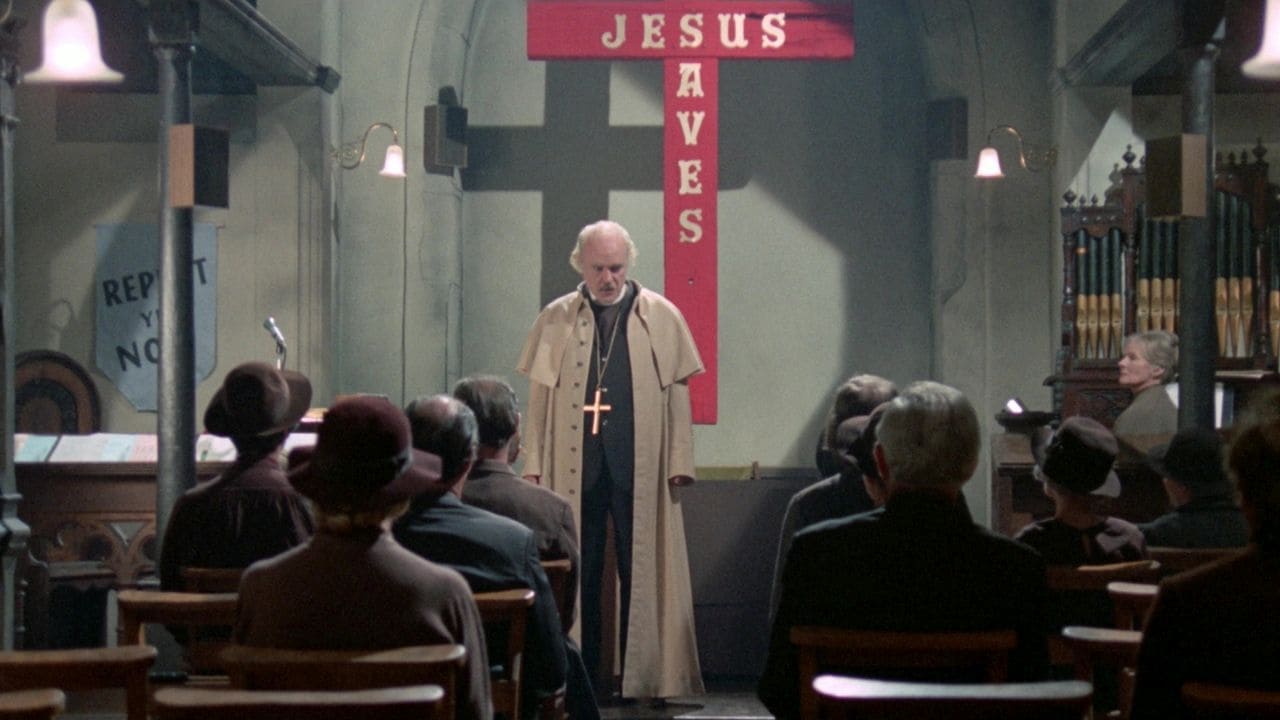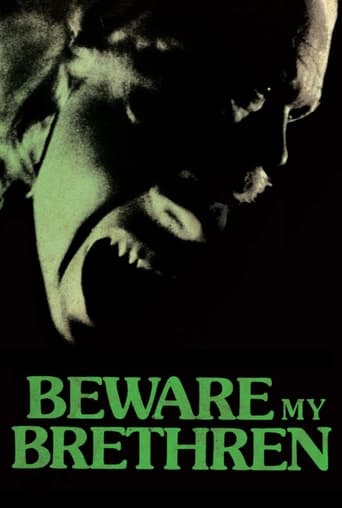

What a waste of my time!!!
... View MoreGreat story, amazing characters, superb action, enthralling cinematography. Yes, this is something I am glad I spent money on.
... View MoreWorth seeing just to witness how winsome it is.
... View MoreThrough painfully honest and emotional moments, the movie becomes irresistibly relatable
... View MoreHaving recently bought a copy of the 2010 release of this lost gem, finally available fully uncut and beautifully presented in anamorphic widescreen 1.78:1 - Odeon Entertainmant ODNF162 - I can't recommend it enough. Taking into consideration the very strict censorship laws and general climate the time of it's production, it's easy to see why it was butchered and suppressed at the time of it's initial release in 1972, the Mary Whitehouse brigade would have soiled themselves collectively at the subject matter alone. And the murder scenes, whilst fairly tame compared to some in todays more enlightened times, were way out there for early 70's Britain.It's not the most polished of films, but the directing is pretty good and the acting pretty solid throughout - with a convincing enough ratio of ham, menace and believability - with the script and storyline excellent. Overall the results, particularly when taking the fairly small budget into consideration, really are very, very good indeed. Which is why I honestly think this film was years ahead of it's time.An essential addition to any Brit Horror collection - it's a proto-slasher of sorts, imo - and also to anyone with an interest in looking at the darker and less positive sides of religion and it's very strong tendencies towards brainwashing, mind control and even abuse. I'd also recommend it to anyone who just loves a good well made and sincere film, however if you're just a cannibals & zombies or shoot 'em ups only freak, don't bother, it's definitely not for you.
... View MoreThis is one of the more notable British horror films from the early 1970s, a stylish and generally accomplished mix of religion, psycho-drama, music and exploitation. The opening cross-cutting between a prayer meeting – accentuated by a powerful gospel song – and a vicious murder is so stunning that the rest of the film actually struggles to live up to it, though the ending – appropriately over-the-top – is worth waiting for. Thematically, the film anticipates Pete Walker's equally good HOUSE OF MORTAL SIN aka THE CONFESSIONAL (1975) – but here we get the added bonus of a typically intense performance from Patrick Magee as the religious group's fanatical leader. Ann Todd (the former Mrs. David Lean) is one of his closest collaborators – in fact, her house is a converted church! – but who has to keep her diabetic condition a secret because the intake of insulin is prohibited by her faith! Her son (Tony Beckley), a security guard and part-time swimming instructor and pamphlet distributor, is repressed and unbalanced – and soon revealed to be the serial killer of nubile girls terrorizing the neighborhood (he even records on tape the victims in the throes of death a' la PEEPING TOM [1960]!). Todd's new nurse happens to have a reporter sister (genre regular Suzanna Leigh) who, alerted to the inhabitants' conspicuous Puritanism, concludes that all is not well with the house and decides to investigate. Given the permissive era in which this was made, violence and gratuitous nudity (along with the standard prerequisites associated with such fare) contend for the running-time – and the audience's attention – with a moderately serious treatment of the subject at hand. The end result may not be surprising or even particularly insightful but nonetheless proves wholly absorbing, thanks also to its undeniable surface polish.
... View MoreA truly dreadful film, seen during the night on BBC2, but glad I saw it! A fairly comprehensive anti-religion film... anyone who comes into contact with it becomes maniacs! Superb! Notable for yet another Patrick Magee scenery-chewing exercise, a host of unknown actors who remained unknown, and a truly jaw dropping series of appalling songs, sung by the "Shirley Bassey" Stars in their Eyes winner, Maxine Barrie (in her younger days!). Poor dear had to wait over 20 years for public recognition. If I were her, I'd buy all the prints and burn them! Definitely a B-movie for showing in a double bill with some cheapo Hammer concoction, but unintentionally funny in places.
... View MoreSPOILERS INCLUDED In 1972 sex and horror movie magazine Cinema X ran an article entitled 'How do you like your screen dollies? A-lively or..dead'. The article juxtaposed stills from Ray Selfe's Sweet and Sexy to represent 'A-lively' and stills from The Fiend to represent 'dead'. The Fiend press pack sent to Cinema X evidently consisting of little more than stills of dead, topless actresses either drowned, buried in cement or in one grisly case hung up on a meat hook. The article was subheaded 'one thing director Robert Hartford-Davis can do. He can sure make a corpse look sexy'.In fact Hartford-Davis was no stranger to sex and death cinema, having directed what's believed to be Britain's first story-driven sexploitation film (The Yellow Teddybears-1963). In the horror film arena he'd directed the infamous Corruption(1967), in which you get to see Peter Cushing butchering a prostitute and Carry On-starlet Alexandra Dane discovering a severed head in a fridge. Although dated today Corruption was the first sign (or warning if you will) of a grittier strain of horror films that would come into force in the 1970's. Hartford-Davis' final horror film The Fiend concerns the Brethren an evangelical movement under the command of 'The Minister' (Patrick Magee). Birdy (Ann Todd) a spinster has dedicated her life to the Brethren which includes handing her house over to the minister for his meetings (and what a motley crew the Brethren are). Her son Kenny (Tony Beckley) ups the ante by murdering women in an attempt to save their souls. Kenny also records his killings on audio-tape, later playing them back while having introspective conversations with his victim's bras. Supporting his mother by having duel jobs as a lifeguard and a security officer Kenny also uses these two occupations to further his third career as a serial killer. Outraged when a girl takes her top off at the pool Kenny follows her home with murder on his mind 'the day of retribution is at hand'. His security officer getup also comes in handy when terrorizing Hammersmith prostitutes. In one brutal sequence, Kenny disrupts one such woman servicing some old geezer, and before beating her around the head with a truncheon the 'nutcase bloody bible thumper' jams a torch into the girl's mouth. Which given the way we're introduced to the prostitute character in the film leaves little to the imagination as to what that torch is perversely symbolic of. Birdy takes an instant dislike to Brigitte a local nurse hired to care for the fail old woman. Brigitte is genuinely troubled by the Brethren, particularly the minister's rule forbidding the use of medicine since Birdy is a diabetic and closet insulin user. Brigitte's sister Paddy a chain-smoking journalist encouraged by her kin to write an expose of the Brethren, poses as an unwed mother-to-be in order to join the fold. Her appearance seems to bring out long repressed desire in Birdy and when the minister finds out she's been having 'foul thoughts' he orders Birdy to fast effectively issuing a death sentence to the diabetic. A desperate rush to administer her an insulin shot ensues, Paddy tries but is inadvertently stopped by Kenny, who locks her in the cellar. Finally standing up to the bullying minister Kenny storms upstairs to administer the shot, but he's too late to save her and literally exerts some biblical vengeance on the minister. Hartford-Davis was apparently driven to make The Fiend after being upset by reports of religious fanatics who forbid their followers the use of blood transfusions and medicine. The resulting film spares you none of his anger, but is also evidence of his exploiteer's eye for a good story milked for all its topical and sensationist worth. Brigitte seems to act as Hartford-Davis' mouthpiece when upon being told religion isn't that cool a subject in the Seventies she replies 'but this is different its so sick something ought to be done about those crank religions'. Inevitably today the film is usually spoken about in the same breath as the films of Pete Walker, particularly The House of Mortal Sin(1975) which similarly works religious iconology into its death scenes. Even though it was made at a time when Walker was just emerging from his School For Sex/nudie-cutie era, The Fiend anticipates Walker's heavy handed use of 'messages' and even his nuances for a headstrong heroine and an ineffectual male hero (amusingly played here by Ronald 'Uncle Quentin' Allen). Censor cuts inflicted on the film largely eliminated the angle the Cinema X article was written from. However in the uncensored print (surprisingly shown recently on UK TV!) the female nudity from actresses pretending to be dead, adds another unhealthy layer to the film. Tony Beckley (who died of cancer in 1980) is hard to fault as Kenny, Beckley also looks the part and his gaunt, sickly features would result in some memorable character bits in the period like the alcoholic in The Lost Continent(1968) and one of the gangsters in Get Carter(1971). It seems likely Beckley was cast here on account of his turn in 'british roughie' The Penthouse(1968) where he played a similar loose screw (who could forget his five minute rant about baby alligators). Another much missed actor Patrick Magee is equally memorable, relishing the minister's fire and brimstone monologues as only Magee could. And The Fiend sits alongside the varied likes of A Clockwork Orange, Dr Jekyll and the Women and Sir Henry at Rawlinson End as film's benefiting greatly from the work of this eccentric, intense actor. Although not without its fair share of tedium, The Fiend stands as one of the more interesting films in Hartford-Davis' hot and cold filmography. Wildly out of place musical numbers from one of the Brethren ('sing sister') recorded in an echo chamber, as well as the idea that Ann Todd on a church organ could produce the funky track 'wash me in his blood' are rare funny moments in another wise dark and bleak piece of work indeed.
... View More